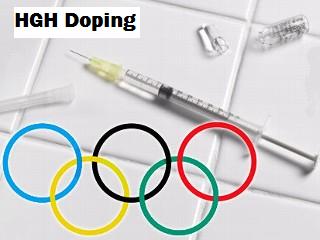HGH Testing: Blood or Urine Sampling?
Much attention has been given to the use of human growth hormone or HGH, especially in the sporting leagues. HGH is a popular performance-enhancing substance that is used by many athletes mainly due to its benefits.

HGH Doping
Since 2004, however, it was included in the banned substances list of major sporting leagues. But continued use has been observed as it is one of the few substances that are difficult to trace. Just recently, much talk has been going about the accuracy and validity of HGH testing procedures. The efforts of scientists and medical professionals alike to provide an all-effective testing system still remain to be futile. That’s because league insiders do not find the system ideal in providing accurate results.
Drugs and Athletes
Drug testing is a popular aspect of the sporting world. Anti-doping officials continuously push for campaigning against the use of performance-enhancing substances. Every year, the list of banned substances is updated. Along with it, newer testing methods are introduced. Actual testing is done either by urine sampling or blood sampling, whichever is deemed effective to provide the necessary results.
Urine Sampling vs. Blood Sampling
As mentioned, there are two ways to detect performance-enhancing substances including HGH. One is through the urine and the other is through blood testing.
Urine testing is preferred by athletes and those who are subjected to it because it is less invasive. It is ideal for those who are afraid of needles. It also has fewer possibilities of complications. Urine testing is also the cheapest method of detection. The downside is this: its result is not as accurate as the result of blood testing. Every year, random urine testing is done in the sporting leagues worldwide. That is to measure the use of banned substances in the sporting world. But since urine testing results can be beaten by masking methods, it is regarded as not providing as much of the needed accuracy to declare that substance abuse is kept in check at least as far as the athletes are concerned.
Blood screening, on the other hand, is more expensive. It also requires needle sticking, which can be bothersome for many. Blood testing is also highly invasive and could mean more risks for potential complications. Still, blood testing is preferred by anti-doping officials because it has the ability to detect more of the banned substances. It is also very sensitive. It is quite difficult to mask the results of a blood screening procedure. More importantly, especially with regards to the controversy about HGH use, blood screening supposedly detects the levels of synthetic HGH in the body.
Regardless, blood screening is not yet declared a foolproof method of detecting HGH supplementation. That’s because it is not. Blood sampling can be a promising method that officials could use in detecting substance abuse but further studies and experimentation are needed. The anti-doping officials also need to be sure that the HGH testing method will withstand the legal aspect of this issue regarding screening for synthetic HGH.












I don’t think that either way of testing should be considered conclusive at this time. Science has a long way to go to get a better and more reliable testing method for HGH.